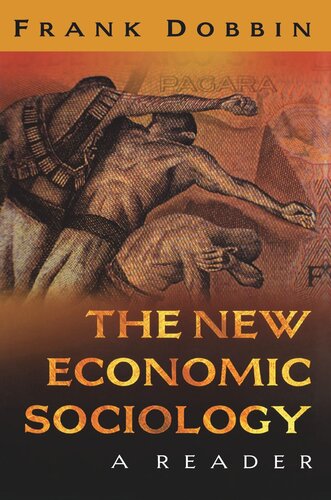

Most ebook files are in PDF format, so you can easily read them using various software such as Foxit Reader or directly on the Google Chrome browser.
Some ebook files are released by publishers in other formats such as .awz, .mobi, .epub, .fb2, etc. You may need to install specific software to read these formats on mobile/PC, such as Calibre.
Please read the tutorial at this link: https://ebookbell.com/faq
We offer FREE conversion to the popular formats you request; however, this may take some time. Therefore, right after payment, please email us, and we will try to provide the service as quickly as possible.
For some exceptional file formats or broken links (if any), please refrain from opening any disputes. Instead, email us first, and we will try to assist within a maximum of 6 hours.
EbookBell Team

4.4
92 reviewsEconomic sociology is a rapidly expanding field, applying sociology's core insight--that individuals behave according to scripts that are tied to social roles--to economic behavior. It places homo economicus (that tried-and-true fictive actor who is completely rational, acts only out of self-interest, and has perfect information) in context. In this way, it places a construct into a framework that more closely approximates the world in which we live. But, as an academic field, economic sociology has lost focus. The New Economic Sociology remedies this.
The book comprises twenty of the most representative and widely read articles in the field's history--its classics--and organizes them according to four themes at the heart of sociology: institutions, networks, power, and cognition. Dobbin's substantial and engagingly written introduction (including his rich comparison of Yanomamo chest-beaters and Wall Street bond-traders) sets a clear framework for what follows. Gathering force throughout is Dobbin's argument that economic practices emerge through distinctly social processes, in which social networks and power resources play roles in the social construction of certain behaviors as rational or optimal. Not only does Dobbin provide a consummate introduction to the field and its history to students approaching the subject for the first time, but he also establishes a schema for interpreting the field based on an understanding of what economic sociology aims to achieve.